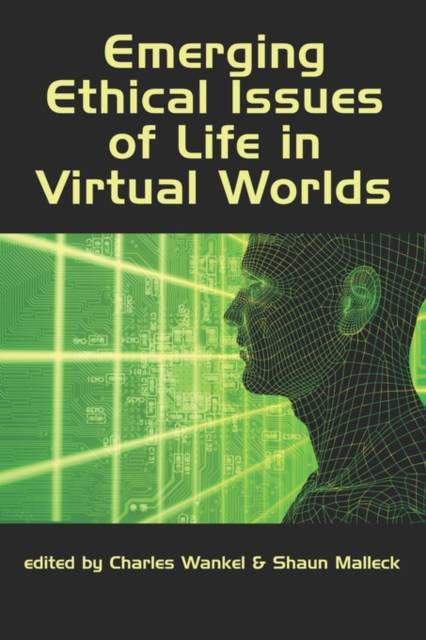
- Afhalen na 1 uur in een winkel met voorraad
- Gratis thuislevering in België vanaf € 30
- Ruim aanbod met 7 miljoen producten
- Afhalen na 1 uur in een winkel met voorraad
- Gratis thuislevering in België vanaf € 30
- Ruim aanbod met 7 miljoen producten
Zoeken
Emerging Ethical Issues of Life in Virtual Worlds (PB)
€ 84,95
+ 169 punten
Omschrijving
A volume in Research in Management Education and Development Series Editors: Charles Wankel, St. John's University Virtual Worlds are being increasingly used in business and education. With each day more people are venturing into computer generated online persistent worlds such as Second Life for increasingly diverse reasons such as commerce, education, research, and entertainment. This book explores the emerging ethical issues associated with these novel environments for human interaction and cutting-edge approaches to these new ethical problems. This volume's goal is to put forward a number of these virtual world ethical issues of which research is only commencing. The developing literature specifically regarding virtual world ethics is a recent phenomenon. Research based on the phenomenon of virtual world life has only been developing in the past four years. This volume introduces pathbreaking work in a field which is only just beginning to take shape. It is ideal as both as a library reference and a supplementary text in upper-division courses focused on the issues of applied ethics and new media. It is unique in being one of the first volumes specifically addressed to ethical problems of the "metaverse". This volume includes articles from authors from around the world exploring topics such as: employing rationalist and casuistic approaches to the controversial topic of "virtual rape" yield an increased understanding of how virtual worlds ought to be designed, the relationship between the ethical and legal dimensions of virtual world users' participation in "paratexts", utilitarian consideration of harm and freedom in the case of virtual pedophilia, norms of research ethics in virtual worlds, the ethical implications of employing virtual worlds as tools for medical education and experimenting with healthcare services, the ethics of the collective action of virtual world communities, consideration of the virtue and potential of cosmopolitanism in virtual worlds, Deleuzian ethical approaches to the experience of the disabled in virtual worlds, the ethics of virtual world design, and the ethical implications of the "illusion of reality" presented by virtual worlds.
Specificaties
Betrokkenen
- Uitgeverij:
Inhoud
- Aantal bladzijden:
- 232
- Taal:
- Engels
- Reeks:
Eigenschappen
- Productcode (EAN):
- 9781607523772
- Verschijningsdatum:
- 23/12/2009
- Uitvoering:
- Paperback
- Formaat:
- Trade paperback (VS)
- Afmetingen:
- 156 mm x 234 mm
- Gewicht:
- 331 g

Alleen bij Standaard Boekhandel
+ 169 punten op je klantenkaart van Standaard Boekhandel
Beoordelingen
We publiceren alleen reviews die voldoen aan de voorwaarden voor reviews. Bekijk onze voorwaarden voor reviews.










